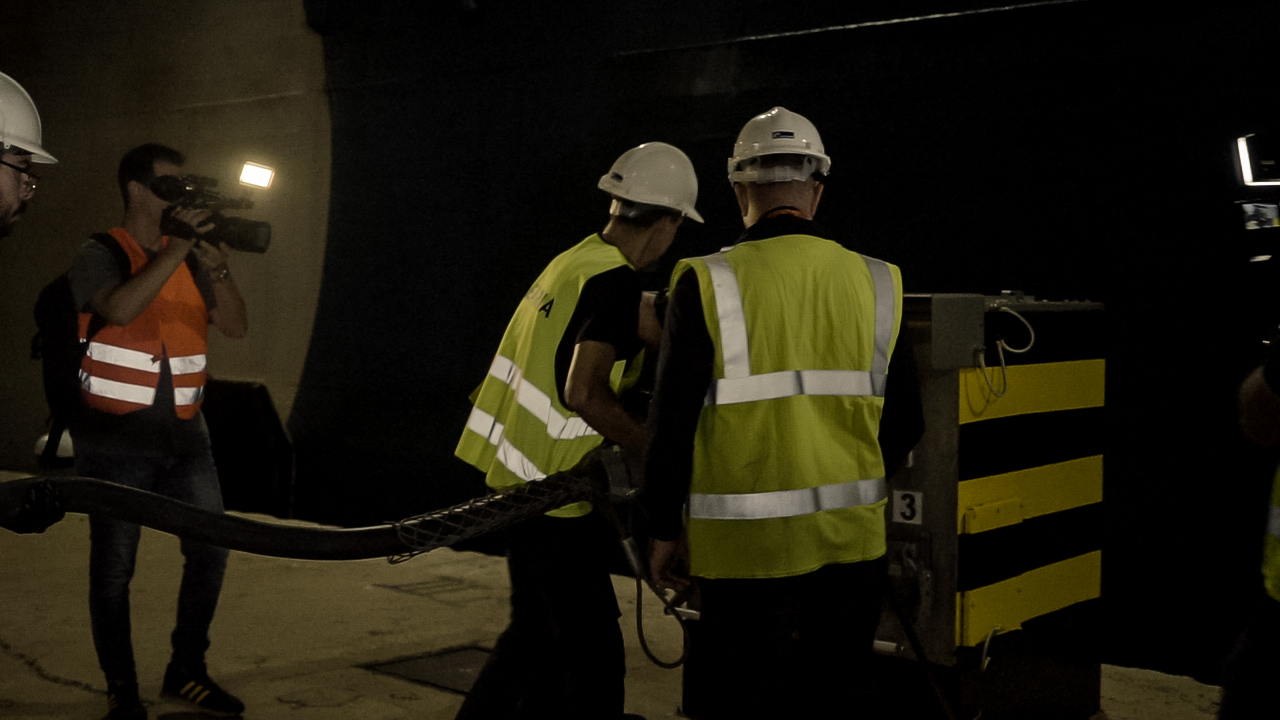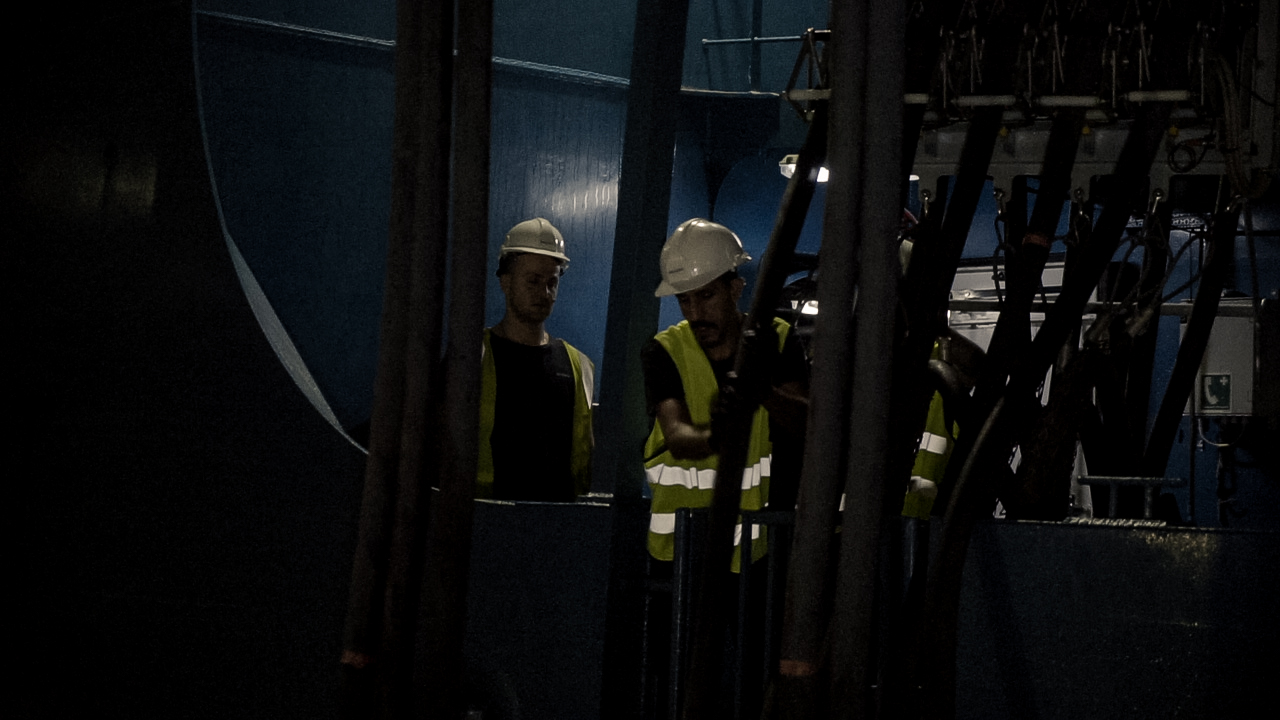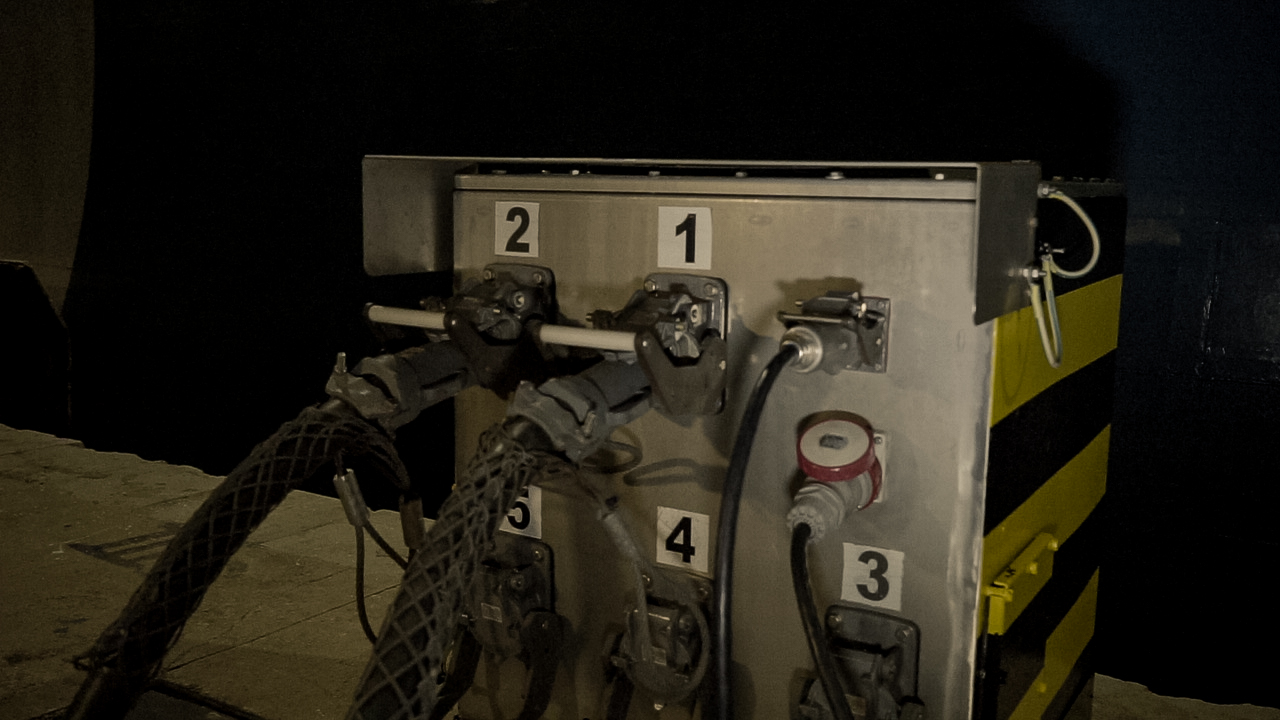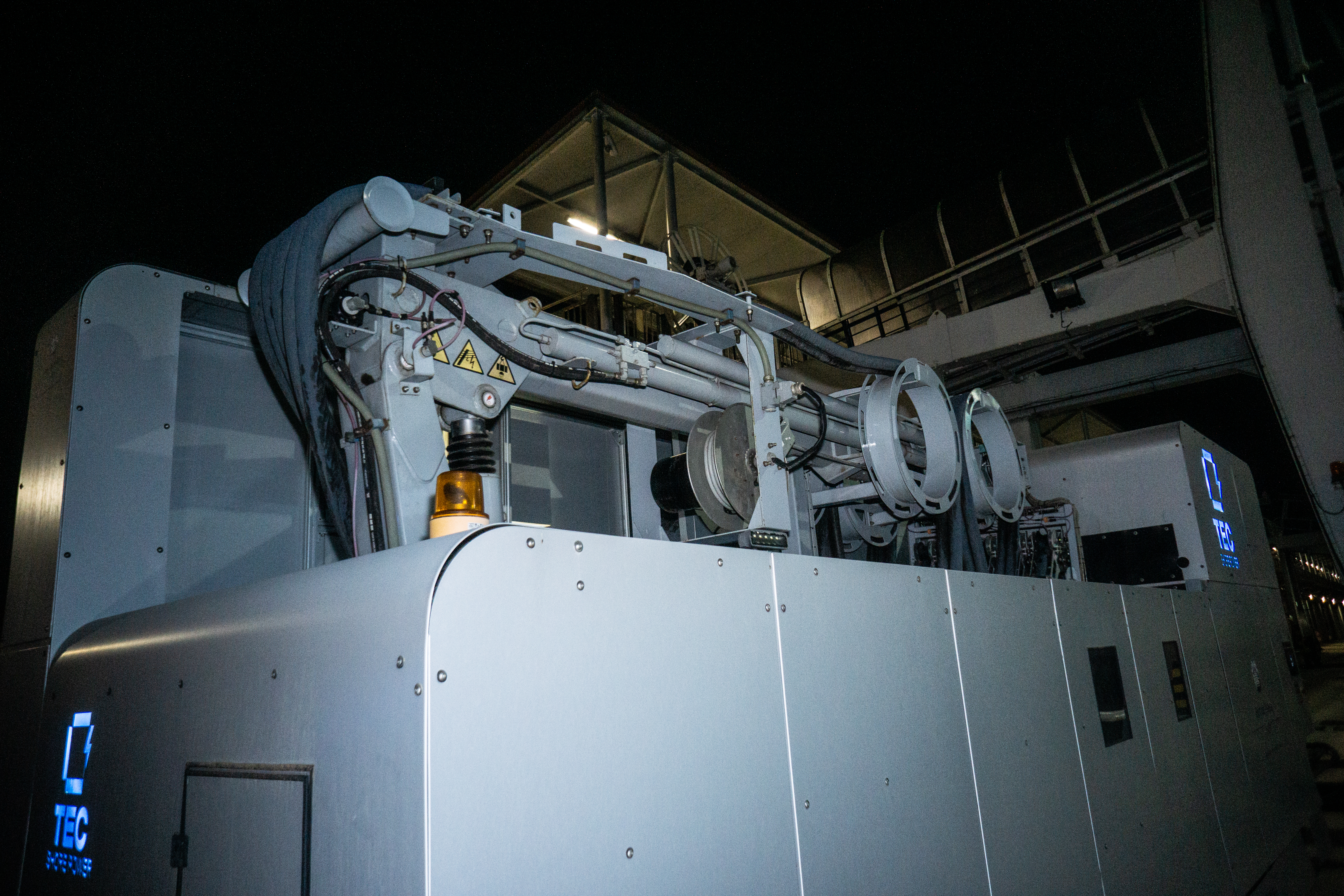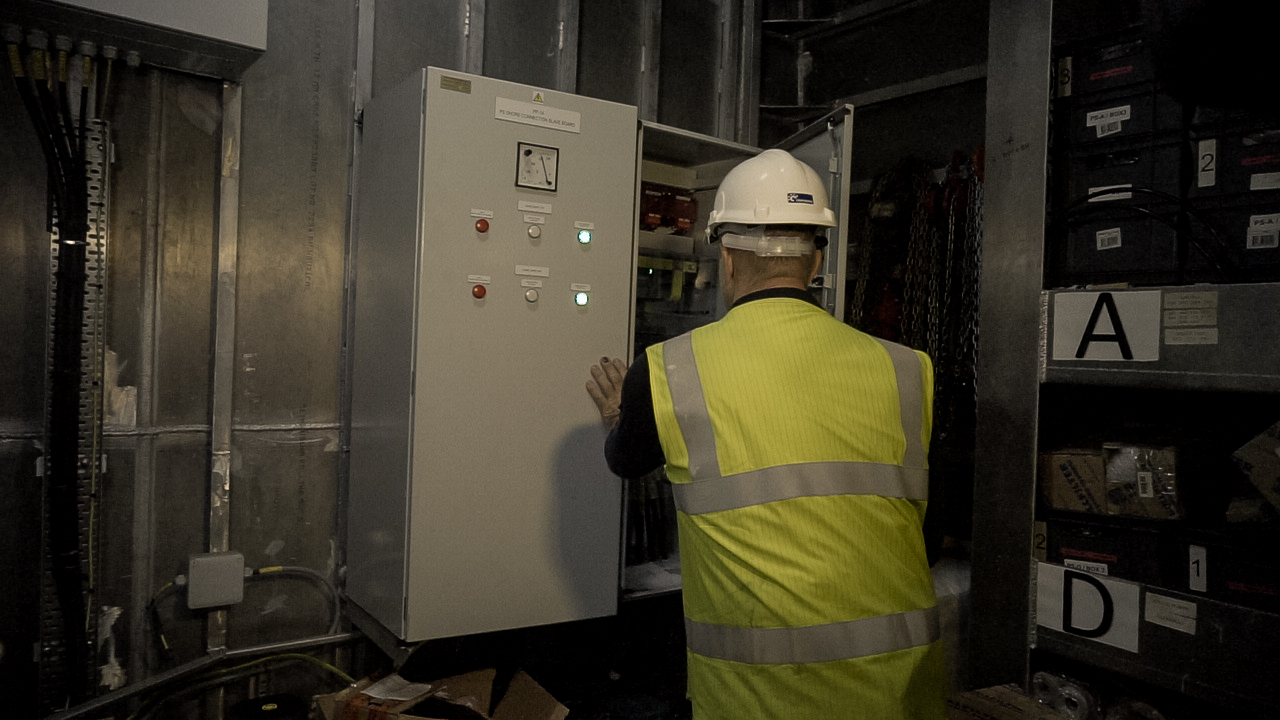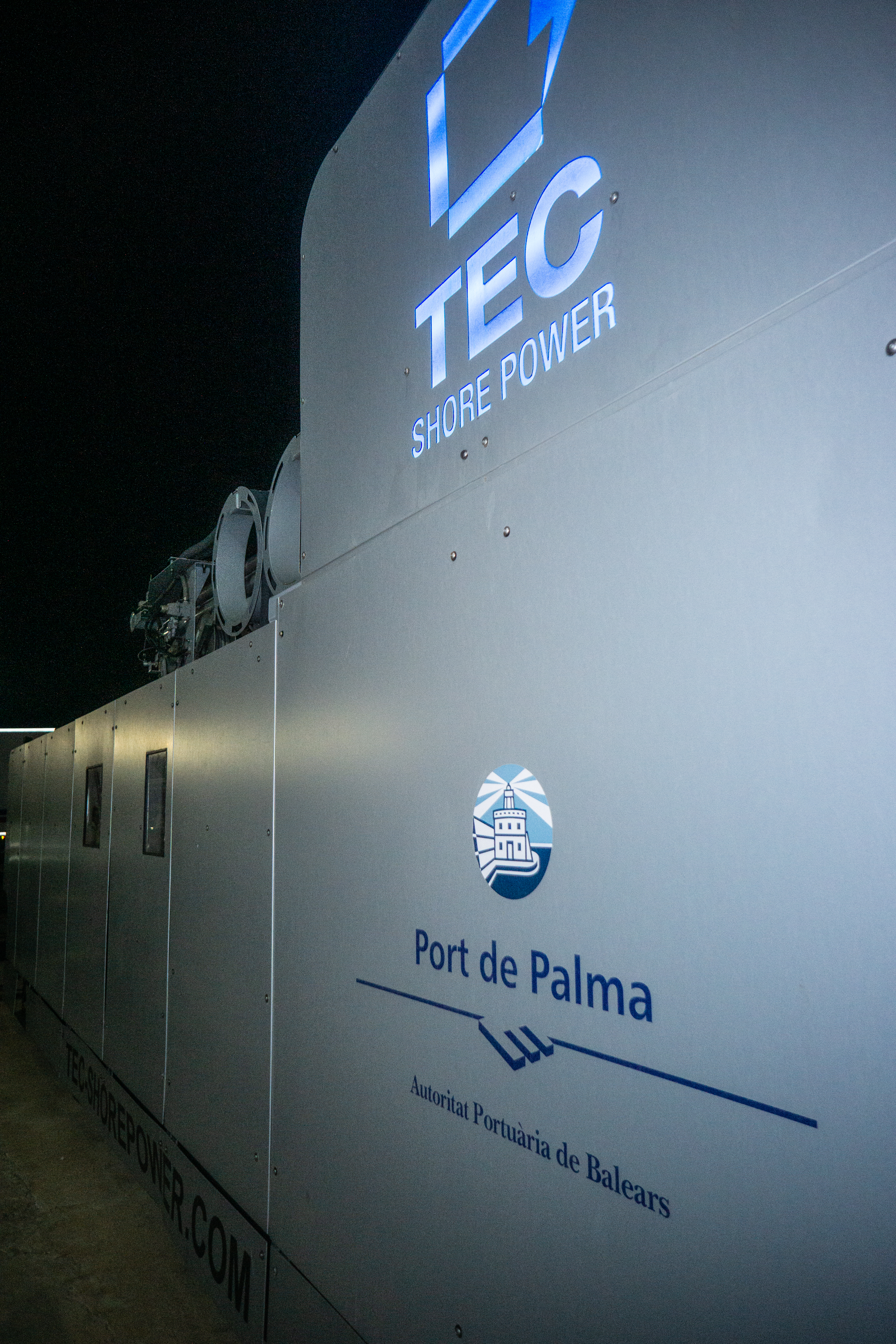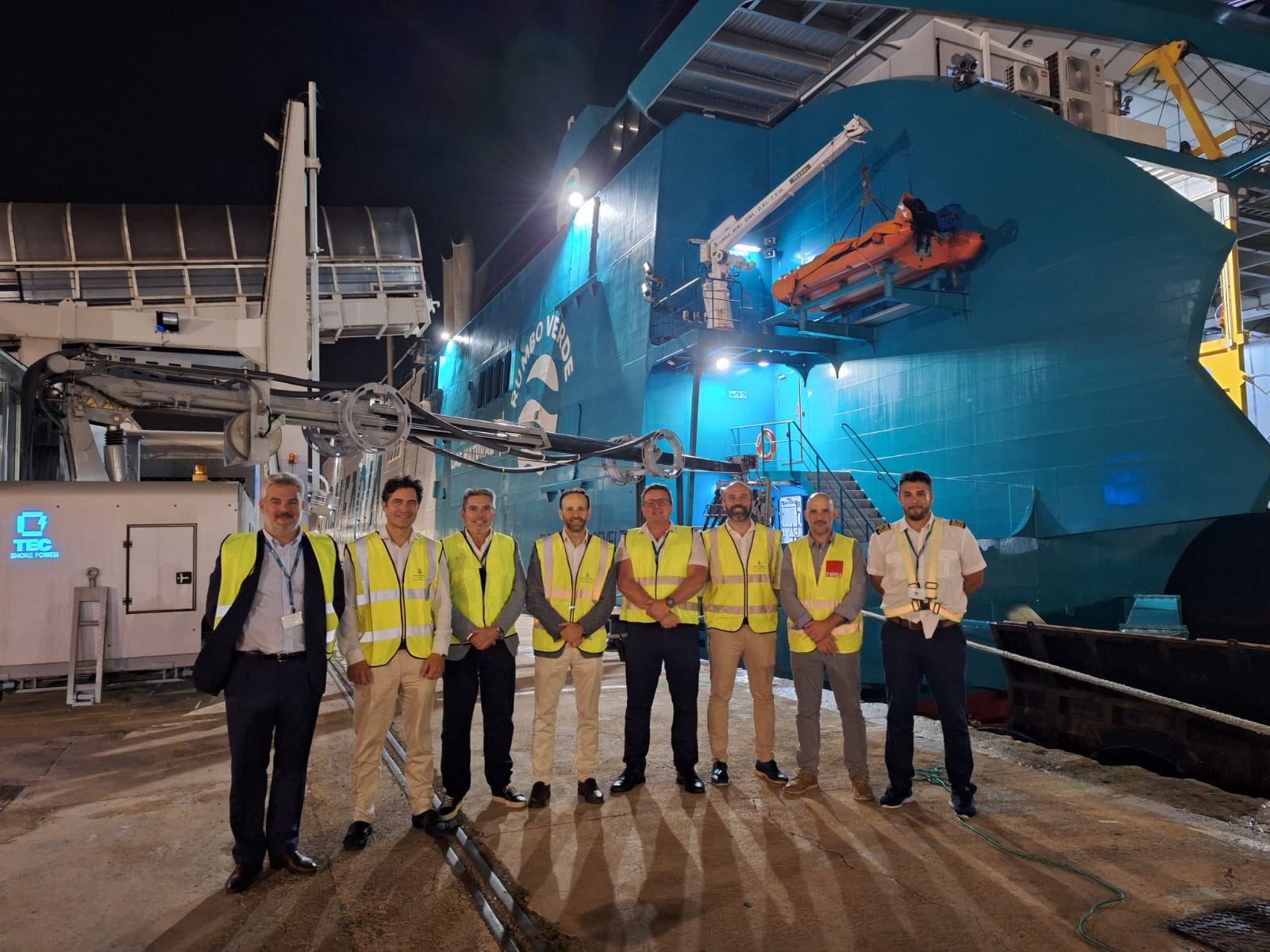
The port of Palma and Baleària have begun using the shoreside electrical connection for ferries on a regular basis
This is the first time the system has been used to supply a route between the Spanish mainland and an island territory
Palma
27/09/2024- Environment and CSR
- Next Generation UE
- Technology and innovation
- Transport and infrastructure
The Port Authority of the Balearic Islands (APB) has put its first shoreside electrical connection for ferries, installed in the port of Palma, into regular operation. The installation, another crucial step towards decarbonising the general interest ports in the Balearic archipelago, is being used by the fast ferry Eleanor Roosevelt, which covers the Palma-Ibiza-Denia route for the Baleària company. This is the first time the system has been used to supply a scheduled route between the Spanish mainland and an island territory.
The service was announced to the media last night. The Baleària ship, which sails on natural gas, docked at the Paraires quay in the port of Palma after 10 pm and, once all passengers and cargo had been unloaded, it was connected to the local low-voltage electricity network. To do this, the auxiliary engines that supply the ferry with electricity had to be shut down beforehand. Once connected to the shore, the Eleanor Roosevelt remained at its mooring with the engines shut down until the departure time, scheduled for eight o'clock this morning, thereby significantly reducing emissions into the atmosphere and the noise produced by the generators.
The facility, known as Onshore Power Supply (OPS) or cold ironing, allows ferries docking at the Paraires quay to connect to the onshore power grid - both low and medium voltage - while moored at the port. The port of Palma has been working with the system on a regular basis since May 2024.
Decarbonisation
The director of the APB, Toni Ginard, emphasised that the new connection is just the first of a series of decisive steps towards true decarbonisation of port operations. "Today it's Palma, but between now and 2030, we have a comprehensive plan with a budget of more than 100 million euros to electrify the docks in all five general interest ports managed by the APB. In the initial phase, it will only be for ferries, but the aim is to extend the service to cruise ships as well". Sanz also thanked the Spanish National Ports Authority, the Sampol Group, which installed the system, and the Baleària shipping company for their collaboration in the project since its inception.
For his part, Baleària's Fleet Director, Rafael Navarro, said that the initiative is in line with the shipping company's decarbonisation goals and forms part of the company's energy efficiency plan. "Our two recently built innovative gas-powered fast ferries, the Eleanor Roosevelt and the Margarita Salas, are already compatible with the new shoreside system, enabling us to eliminate emissions in the port. Our intention is to progressively expand the number of ships equipped with the technology to make further progress towards our green targets".
Projects underway
The APB has begun the construction of a new infrastructure that will allow direct shore-to-ship power connection in the port of Alcúdia at a cost of 2.6 million euros and with a completion period of nine months, having awarded the contract for the works to UTE Infraestructura Elect. In parallel, four other OPS infrastructures are pending award: two on the Botafoc quays in the port of Ibiza, one on the commercial quays in the port of Palma and another on the Cós Nou quay in the port of Mahón.
The bidding amount for the project to construct the two points in the port of Ibiza is 6 million euros, the work in the port of Palma has a budget of more than 2.6 million euros, and the budget for the port of Mahón is 3.3 million euros. In total, the port authority that manages the general interest ports in the Balearic Islands will invest more than 16 million euros in the initial phase of implementing cold ironing systems in the ports of Palma, Alcúdia, Eivissa and Maó.
In the second phase, four more points are planned in the ports of Palma and Ibiza, one more in each of the ports of Mahón and Alcúdia and another in the port of La Savina for the scheduled traffic between Ibiza and Formentera. In total, the investment budget is around 100 million euros. The European Union is financing 40% of the cost of these investments through NextGeneration funds.
Reducing emissions
The OPS system at the port of Palma can provide power to either a standard ferry with a maximum power demand of 1,600 kW (medium voltage) or a fast ferry with a maximum power demand of 800 kW (low voltage), but not simultaneously. The shoreside electrical connection includes 275 meters of medium-voltage underground lines, a transformer substation, and a frequency-boosting substation in the service area of the port of Palma.
When ships are in port, they use their auxiliary engines to produce electricity while loading, unloading and docking. And although they generate fewer emissions while at berth than at sea, the pollutants emitted have a direct impact on the air quality in both the surrounding communities and the port itself.
Using electricity from the national grid reduces the emissions produced by the ship, as the emission factor per megawatt-hour (MWh) of the national grid generators is much lower than that of the ship's auxiliary engines.
Baleària, a shipping company at the forefront of sustainability
Thanks to its pioneering commitment to eco-efficient mobility powered by more environmentally friendly energy sources, Baleària has become a benchmark in sustainability. The shipping company currently operates 11 ships with dual engines, a versatile technology that allows them to sail with different fuels, including natural gas today and renewable CO2-neutral sources in the future. It also has two electrically powered ferries. As a result, it was the first Spanish shipping company to be awarded the Green Marine Europe certificate.
Baleària prioritises digitalisation and utilizing technology to enhance customer service as key strategic elements of its operations, the cornerstone of which is its Fleet Control Tower, which plays a crucial role in monitoring real-time data, supported by a fleet of smart ships and digitalised loading operations.


